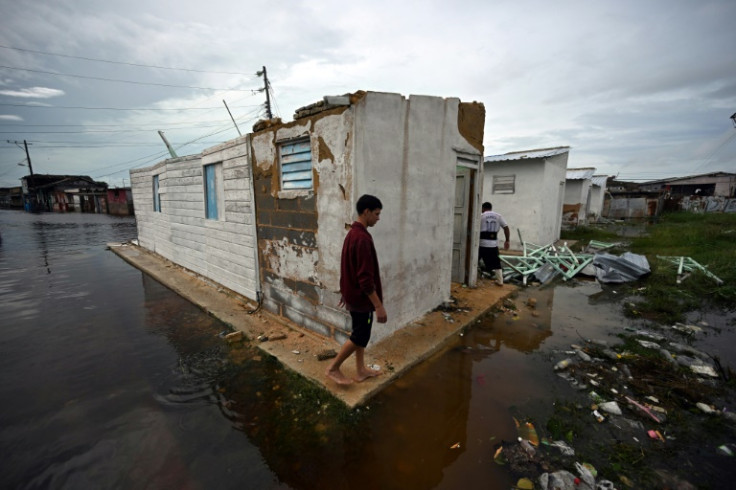
Cuba's southeastern region was rocked by two powerful earthquakes on Sunday, compounding the island's spiraling crisis after being battered by Hurricane Rafael and dealing with countrywide power outages.
The United States Geological Survey (USGS) reported that a magnitude 5.9 earthquake struck 21 miles off the municipality of Granma around 11 a.m., followed by a stronger 6.8 tremor shortly before noon.
The quakes caused extensive damage to homes, buildings, and power infrastructure, with landslides reported in the affected areas. In Manzanillo, Granma's largest city, photos shared on social media showed collapsed facades and fallen bricks. Residents also posted images of deep cracks in walls and partially collapsed roofs. One house in the area was left with a large crack running through a wall, allowing sunlight to leak into the living room.
The town of Pilón, closest to the earthquake epicenter, experienced significant damage, including fallen windows in a local school, as reported by the Miami Herald. As the tremors hit, residents flooded social media with messages checking on family members.
The earthquakes follow the devastation caused by Hurricane Rafael, which struck Cuba last week as a Category 3 storm. The hurricane destroyed hundreds of homes, flattened crops, and damaged hospitals and schools in the western part of the island. On top of that, Cuba is grappling with a nationwide blackout that has left millions without power.
Images of the aftermath of the earthquakes in Cuba
— Carolann (@Khaleesicorleo) November 11, 2024
Damage is reported in several buildings in the municipality of Bartolomé Masó pic.twitter.com/rwWKPImSBq
The rapid succession of these natural disasters has left the island in a state of heightened vulnerability, leading to concerns about a potential increase in migration as Cubans seek safety and stability abroad. The economic decline has led to a significant exodus, with the Cuban population decreasing by 18% over the past three years, according to a study by a local demographer.
Cuban authorities have urged residents to stay in open spaces, saying that saving lives is the priority. President Miguel Diaz-Canel confirmed that both local and national governments are in communication, working to assess the damage. Meanwhile, Prime Minister Manuel Marrero Cruz reported that recovery efforts from the hurricane, including restoring water and electricity, are ongoing.
Despite the challenges, Diaz-Canel said that recovery efforts would continue. "The progress is appreciable, but there is still much to do. We will not stop until we fully recover."
© 2024 Latin Times. All rights reserved. Do not reproduce without permission.







